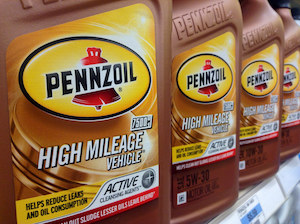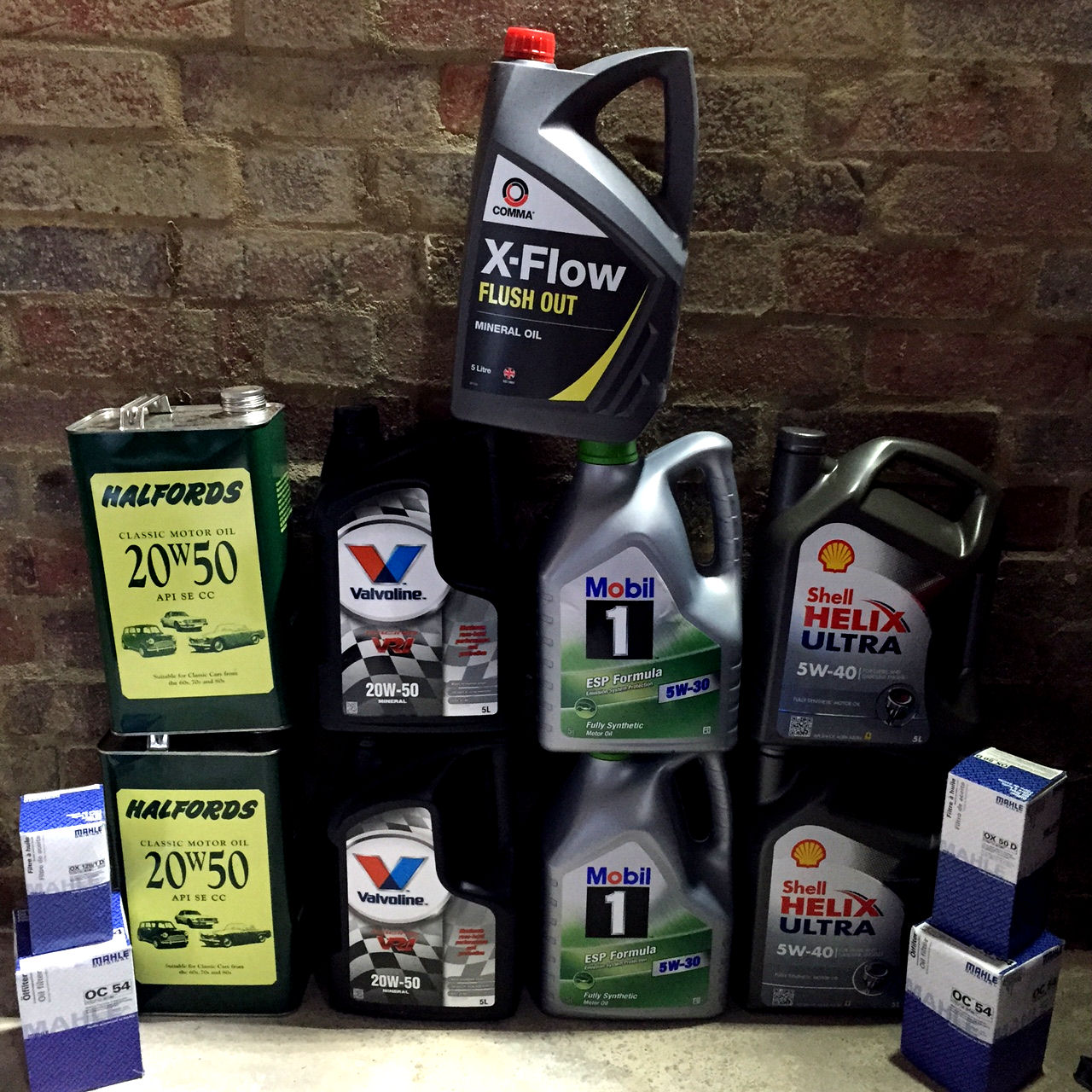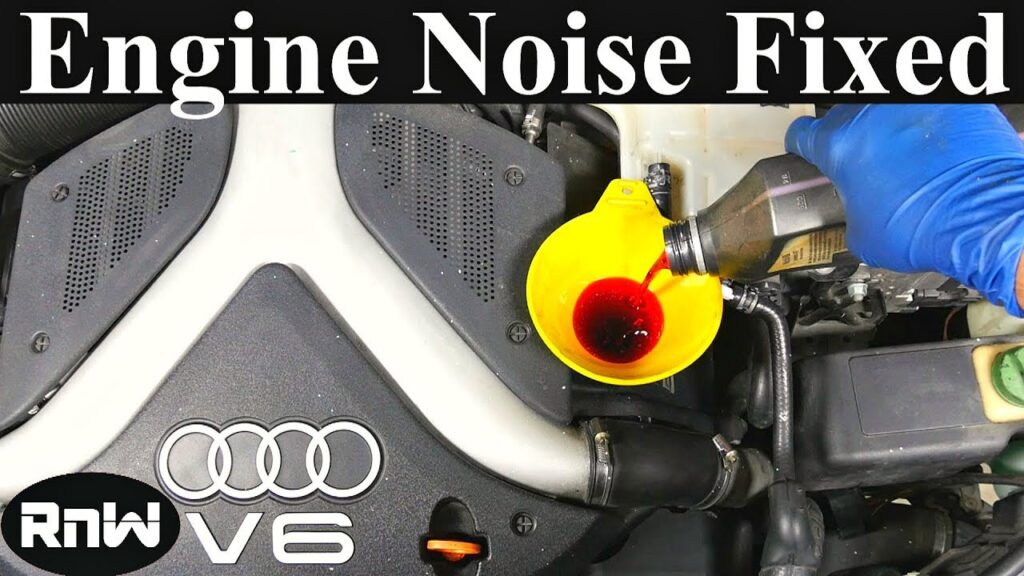The best engine oil for vintage cars usually has a higher zinc content, such as an API SF/SG rated oil. Castrol GTX 20W-50 is often recommended for these classic engines.
Selecting the right engine oil is critical for maintaining the health and performance of your vintage car. These vehicles typically require oils that can protect older engine designs, which lack the tight tolerances of modern engines. A high-zinc or ZDDP (zinc dialkyldithiophosphate) formulation is ideal for reducing wear on flat-tappet camshafts, a common feature in older cars.
Vintage car enthusiasts often prefer mineral oils or specific classic car formulations to maintain authenticity. Today’s market offers various specialized oils tailored to the unique needs of vintage engines, ensuring both protection and peak performance. With proper lubrication, your classic ride can continue to cruise the streets just as it did in its heyday.

Credit: carbrain.com
Vintage Viscosity
Welcome to the splendid world of vintage cars, where every detail matters in maintaining their charm and performance. Among these details is the essential element of engine oil, which plays a crucial part in the longevity and health of these classic beauties. Let’s delve into the intricacies of ‘Vintage Viscosity’ and uncover the best engine oil for your prized possession.
The Role Of Oil In Engine Health
Imagine your vintage car’s engine like a beating heart. The oil is its lifeblood. It serves many vital functions:
- Reduces friction: Keeps engine parts smooth.
- Minimizes wear: Protects against damage.
- Dissipates heat: Cools down the engine.
- Prevents corrosion: Shields metal surfaces.
- Cleans debris: Gathers dirt and filters it out.
Understanding Viscosity And Vintage Cars
Viscosity refers to oil’s thickness. For vintage cars, the right viscosity is key. Why? Because older engines were built with different standards and need a specific oil type to run smoothly. The ideal engine oil fits the vintage car’s engine just right.
| Viscosity | Temperature Range | Classic Car Fit |
|---|---|---|
| Thick Oil (High Viscosity) | Cold Climates | May cause hard starts |
| Thin Oil (Low Viscosity) | Hot Climates | Better flow but may reduce protection |
| Multigrade Oil | Varies | Best for varying temperatures |
Always check your vintage car’s manual. It suggests the right oil. If the manual is missing, opt for a classic car-specific oil with correct viscosity ratings like 10W-30 or 20W-50. These oils are blended for older engine designs, offering perfect compatibility.
Historic Horsepower Preserved
Caring for a vintage car involves more than just maintaining its sleek exterior. It’s about preserving the engine—the heart of your classic beauty. The right engine oil plays a crucial part in this preservation. With numerous advancements in automotive lubricants, owners of vintage cars face a challenge. Choose the perfect oil and gifts your historic ride a life full of vigor.
Matching Oil With Engine Design
Understanding your vintage car’s engine design is the first step toward preservation. Older engines were built with different tolerances and materials than those of modern engines. This distinction makes the choice of oil pivotal. A mismatch can lead to increased wear and tear. Here’s what to consider:
- Zinc levels: Vintage engines often require oils with higher zinc to protect their unique flat-tappet camshafts.
- Viscosity ratings: Stick to the manufacturer’s recommendations to ensure proper lubrication.
- Detergent and non-detergent oils: Some older engines weren’t designed for detergent oils. Choose wisely.
Era-specific Formulations
For engines that have seen decades of life, era-specific formulations offer tailored protection. Manufacturers now craft oils specifically for vintage models, taking into account the materials and requirements of bygone eras. Reflecting on a vintage engine’s needs, these formulations often include:
| Ingredient | Benefit |
|---|---|
| Higher base oil viscosity | Ensures seals remain flexible to prevent leaks |
| Appropriate additives | Protects against rust and corrosion |
| Reduced volatility | Minimizes oil consumption |
Choose an oil that mirrors the golden days of your car’s performance. With the right match, you preserve not just an engine, but a piece of history.
Conventional Vs. Synthetic
Choosing the right engine oil for your vintage car is crucial to its performance and longevity. This age-old debate—conventional vs. synthetic oil—holds even more weight for antique autos. Both types have traits that could benefit or deter their use in older engines. Let’s explore what suits your classic car best.
Pros And Cons For Antique Autos
Conventional oil, also known as mineral oil, is the traditional option for many vintage car enthusiasts. Synthetic oil, on the other hand, is a more modern invention. Each has its virtues and downsides.
| Type | Pros | Cons |
|---|---|---|
| Conventional Oil |
|
|
| Synthetic Oil |
|
|
What’s Best For Your Classic Car?
Making the best choice for your classic car involves understanding its specific needs and history. Review your car’s manual and consider factors like mileage, typical driving conditions, and previous oil use. Here are key points to guide you:
- For cars with low mileage and in prime condition, synthetic may offer better protection.
- High-mileage engines with wear might benefit from conventional oil’s thickness.
- Gasket condition is crucial; synthetics may cause leaks if gaskets are old.
- Change frequency matters. Conventional oil requires more regular changes.
In essence, your vintage car’s age, condition, and the environment it operates in will steer your decision. Always seek advice from experts who specialize in antique autos. They can provide tailored solutions for your classic gem.

Credit: m.youtube.com
Additive Advantages
Additive Advantages: Choosing the right engine oil for a vintage car goes beyond brand or viscosity. Engine oils come with additives that can significantly extend your engine’s life. These special ingredients help protect and enhance the performance of older engines that have unique needs. Understanding the benefits of different additives is key when selecting engine oil for a vintage beauty.
Essential Additives For Older Engines
To maintain the charm and efficiency of a vintage engine, certain additives are critical. They can reduce wear, prevent corrosion, and help old seals stay supple. Below is a list of must-have additives:
- Zinc (ZDDP): Offers superior wear protection.
- Phosphorus: Works with Zinc to enhance engine protection.
- Detergents: Keep engine components clean.
- Antioxidants: Stop oil from breaking down at high temperatures.
- Anti-foaming agents: Prevent foam formation for better lubrication.
- Seal conditioners: Keep seals flexible and prevent leaks.
Avoiding Harmful Chemicals
Not all additives are good for vintage cars. Some can dage old engine components. Below is a table of chemicals to avoid in engine oils for vintage cars:
| Chemical | Reason to Avoid |
|---|---|
| Friction Modifiers | Can reduce clutch and gear effectiveness in cars with a “wet clutch” system. |
| Excessive Detergents | May strip away vital oil deposits on older engine parts. |
Brands To Bank On
When caring for a vintage car, the right engine oil is crucial. The engine is the heart of the car. It must beat with quality oil. Vintage cars need special oils with the right balance. These oils help keep classic engines running smoothly. Knowing which brands to trust can be tough. Here are solid options known for their quality in preserving classic vehicles.
Trusted Names In Vintage Car Care
Vintage cars deserve the best oil. Certain brands have built a reputation on quality. They provide oils that are perfect for older engines. Among the trusted names, you can count on brands like Castrol, Valvoline, and Mobil 1.
- Castrol: Their classic oils cater to vintage needs.
- Valvoline: Offers high-quality oils formulated for older vehicles.
- Mobil 1: Known for enhancing engine performance and protection.
Comparing Top Products
It’s helpful to compare specific products. This reveals what suits your vintage car. See how each oil stands up to the tests of time and engine stress.
| Brand | Product Name | Viscosity | Zinc Levels | Suitable For |
|---|---|---|---|---|
| Castrol | Classic XXL 40 | High Viscosity | High Zinc Content | Pre-1950s Cars |
| Valvoline | VR1 Racing Oil | Multi-Viscosity | Enhanced Zinc | Performance Vintage Cars |
| Mobil 1 | Full Synthetic Motor Oil | Advanced Full Synthetic | Optimized Zinc Levels | Modern Classic Cars |
Pick from brands that honor classic engines. Castrol gives vigorous life to pre-war cars. Valvoline powers performance hungry engines. Mobil 1 shields engines that blend the old with new tech.
Frequency And Filters
Maintaining the lifeblood of vintage cars is an exercise in devotion. Timely oil changes and filter selection are vital components.
It’s about striking the perfect balance between preservation and performance.
How Often Should You Change Oil?
Classic cars deserve a tailored approach. Every 1,000 miles or annually, whichever comes first, is a good benchmark.
Older engines may require more frequent changes. Check the owner’s manual or consult a trusted mechanic.
Stick to a schedule to keep components lubricated and prevent corrosion and wear.
Filter Choices For Finer Function
The right filter ensures clean oil circulation. Options vary.
- Cotton waste filters: Traditional, needs regular replacement.
- Cartridge filters: Easy to replace, choose quality brands.
- Spin-on filters: Modern convenience, check compatibility.
Consider the filter’s bypass valve rating. Ensure it matches the engine’s requirements. Uniform filter changes with oil, optimizes performance.
Diy Or Professional Change
Vintage cars require special care, and choosing the right engine oil is essential. Knowing whether to change the oil yourself or seek professional help can save time and money. With proper guidance, DIY oil changes serve as an engaging weekend project. Yet, complex cases might need an expert’s touch. Here’s what to consider:
Step-by-step Guide To Changing Oil
Changing the oil in a vintage car is straightforward with the right tools. A DIY oil change involves several steps to ensure it smoothly comes together:
- Gather necessary tools such as wrenches, oil filter, funnel, and new oil.
- Drain old oil by removing the oil drain plug.
- Replace the oil filter.
- Add new oil using the funnel to prevent spills.
- Check the oil level with the dipstick for correct filling.
Always dispose of old oil responsibly.
When To Call The Experts
There are cases where professional service is the best choice:
- Lack of proper tools can make the job difficult.
- Insufficient experience might lead to mistakes.
- Complexity in certain vintage car models requires expert knowledge.
For any hesitation, reach out to a professional mechanic to ensure your vintage car’s integrity is maintained during the oil change.
Protecting Your Passion
Preserving the charm of vintage cars requires more than a simple oil change. The proper engine oil breathes new life into an old engine. Selecting the ideal oil safeguards the engine of your treasured classic. An ounce of prevention could equate to years of uninterrupted enjoyment on the road.
Storage Tips For Peak Performance
Storing a vintage car properly means maintaining its peak condition. Follow these pointers:
- Climate control is key to preventing rust and deterioration.
- Use a breathable car cover to protect the paintwork.
- Keep the fuel tank full with a fuel stabilizer to prevent moisture.
- Change the oil before storage to remove contaminants.
These steps ensure the engine stays ready for the next adventure.
Regular Maintenance Routines
Regular upkeep extends the engine’s life and maintains performance. Adhere to these practices:
- Check oil levels frequently and top off as needed.
- Schedule oil changes based on usage, not only time.
- Inspect for leaks and address them immediately.
- Use engine oil designed for vintage models.
These habits will keep your classic car’s engine purring like a kitten.
Legal And Environmental Considerations
Taking care of a vintage car means more than just regular maintenance; it also involves abiding by legal mandates and considering the impact on the environment. Vintage car enthusiasts need to balance their passion with responsibility. Understanding both the legal and environmental considerations is key to a sustainable hobby that respects both the past and the future.
Regulations Affecting Vintage Vehicles
Vintage car owners must navigate a complex landscape of legal requirements. These regulations can vary widely depending on location and can impact everything from how often these cars can be driven to the types of oil that can be used. For instance, some regions have emissions standards that even classic cars must meet. Ensuring compliance while maintaining a car’s authenticity is a delicate balance.
- Emission testing exemptions for vehicles of certain ages
- Specialty oils that meet both performance standards and regulatory requirements
- Understanding local laws for vehicle modifications and oil disposal
Eco-friendly Options For Enthusiasts
Green alternatives exist for those seeking to reduce their environmental footprint while enjoying their vintage cars. Biodegradable oils and lubricants lessen harmful effects on the environment without compromising engine performance. Consideration of these products showcases a commitment to preservation, extending beyond the car to the world it drives in.
| Eco-Friendly Product | Benefits |
|---|---|
| Biodegradable Engine Oil | Minimizes pollution and soil contamination |
| Synthetic Lubricants | Offers longevity and efficiency, reducing waste |
By choosing ecologically responsible products, vintage car owners ensure their beloved vehicles continue to be part of a sustainable world.

Credit: www.tradeclassics.com
Frequently Asked Questions
What Is The Best Oil To Use In A Classic Car?
For classic cars, using a high-quality, multigrade oil with proper zinc content, like a 10W-30 or 20W-50, is often recommended to ensure proper lubrication and engine protection.
What Grade of Oil Is Used in Old Cars?
Older cars typically use a multi-grade oil with higher viscosity, often 10W-30 or 10W-40, to accommodate engine wear and design.
Should I Use Synthetic Oil in My Classic Car?
Using synthetic oil in a classic car can offer better protection and performance but consult your vehicle’s manual or a specialist to ensure compatibility with older engine seals and materials.
Is 5w-30 Good for Old Cars?
5W-30 can be suitable for many older cars, especially if they operate in colder climates. Always check the vehicle’s manual for manufacturer recommendations.
Conclusion
Selecting the perfect engine oil is crucial for the health and longevity of your classic car. Embrace oils with the right viscosity and additives tailored for vintage engines. Regular maintenance paired with the highest quality lubricants will ensure your prized possessions last for years to come.
Safeguard your automotive investment and keep your vintage vehicle running smoothly with the best engine oil choices.

